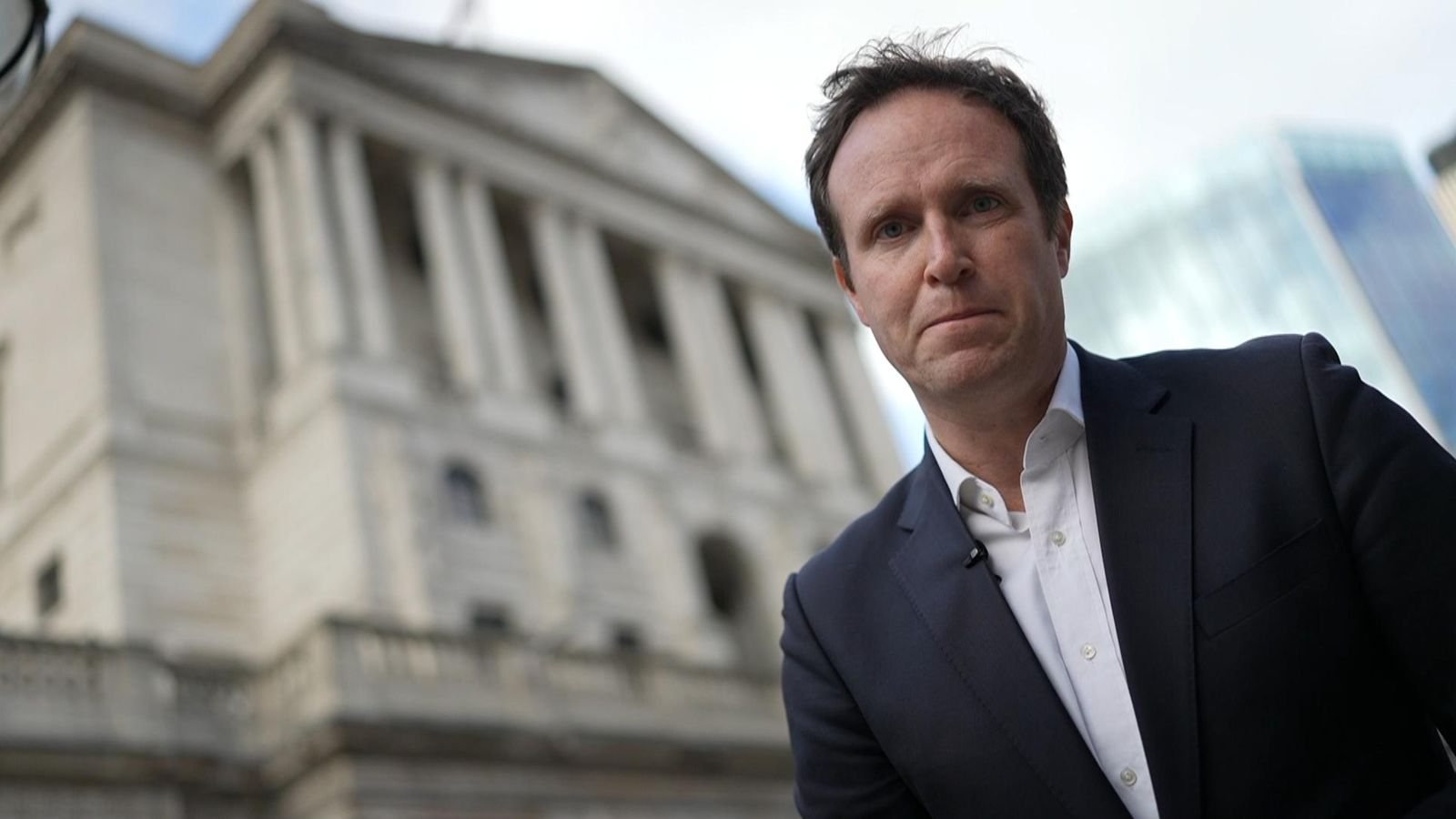Inflation rate rises are turning into a sticky phenomenon – and there are a few obvious consequences

Not good.
Not good at all.
The last few months of inflation data have had a dreary and repetitive rhythm to them.
Economists predict the rate at which prices are rising will finally begin to fall, and fast. Then the official data comes in and it turns out inflation is not falling as fast as predicted. And then everyone gets depressed.
Spending calculator: See which prices have gone up or down
That pattern repeated itself today.
Economists thought the headline inflation rate – the consumer price index annual rate – would drop in May from 8.7% to 8.4%. Instead, it stayed precisely where it was in April.
Even worse, the core rate of inflation, which is what you’re left with when you strip out volatile stuff like fuel and food, actually rose from 6.8% to 7.1%.
This will all unnerve an already nervous Bank of England.
It pays more attention to these underlying adjusted measures, which give you more of a sense of whether price rises are becoming embedded in the economy.
And all the signs suggest that that is precisely what is happening: what began as a rise in one-off, explicable prices seems to be turning into a stickier phenomenon.
Read more:
No decrease in inflation as it remains at 8.7%
Jeremy Hunt rules out mortgage support and capping food prices
While it’s possible that inflation may fall sharply later on this year, that likelihood diminishes with every month that core inflation remains so high.
There are a few obvious consequences.
The first is that the Bank of England’s Monetary Policy Committee will certainly raise interest rates again in the coming months, putting further pressure on mortgage borrowers.
A couple of months ago those bank rates were expected to peak at around 5%. Now they are expected to hit 6%.
This will be very painful for households with mortgages and may have a bearing both on the housing market and the wider economy.
Listen and subscribe to the Ian King Business Podcast here
However those who’ve paid off their mortgages and are net savers will see an increase in their fortunes (though banks are always slower to pass on savings rates than to put up borrowing rates).
The other consequence is political.
Higher inflation and mortgage rates are likely to be one of the big factors in the coming election.
The prime minister pledged earlier this year to halve inflation. That pledge now looks far less likely than it did back in January.
He also pledged to keep the economy growing but despite having avoided recession thus far, higher interest rates will possibly depress UK gross domestic product, which is barely flatlining at present.
In short, these figures are not good for the Bank of England and, in their separate way, not good for the prime minister and chancellor.
Many years ago, a famous German economist once described inflation as being a little toothpaste: very easy to squeeze out of the tube; very hard to put back into the tube.
We are being reminded of just how right he was.
For all the latest business News Click Here

